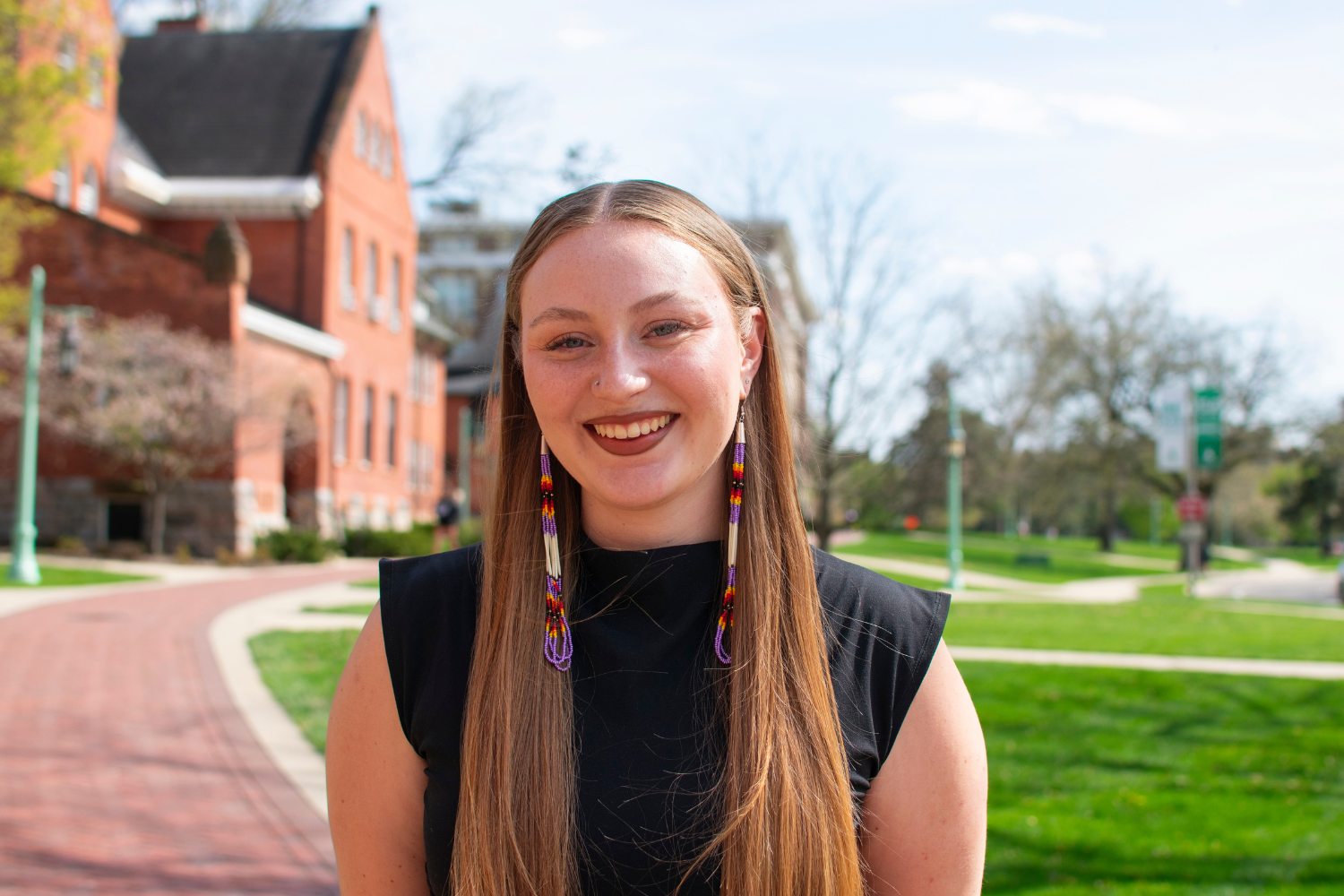Kaylin Casper is MSU’s 14th Udall Scholar, receiving the scholarship for Tribal Policy.
Casper is an Honors College junior double-majoring in Sociology through the College of Social Science and Humanities Pre-Law in the College of Arts and Letters. She is also pursuing a minor in American Indian and Indigenous Studies, and a minor in Lesbian, Gay, Bisexual, Transgender, Queer, and Sexuality Studies — both through the College of Arts and Letters.
“I am incredibly honored to have been selected for the Udall scholarship and I look forward to representing my communities and Michigan State this August,” Casper said. “I am on a life mission to make Indigenous liberation a tangible reality for our communities, and I am humbled that the Udall Foundation recognizes my vision and commitment to my communities."
“Kaylin Casper’s scholastic excellence, dedication to tribal issues and advocacy for marginalized communities make this a most well-deserved recognition from the Udall Foundation,” said MSU President Kevin M. Guskiewicz, Ph.D. “She is clearly a caring and deeply engaged scholar who I am proud to see representing MSU in this unique scholarship program.”
Casper is a member of the Social Science Scholars Program, an Associated Students of MSU General Assembly representative, a member of the North American Indigenous Student Organization, or NAISO, and a member of the Land Acknowledgement Plaque Committee. She is a direct descendant of the Grand Traverse Band of Ottawa and Chippewa Indians, and attended John Burroughs High School in Burbank, California.
Casper is one of 55 students selected as 2024 Udall Scholars. Thirty-seven scholars intend to pursue careers related to the environment; nine scholars intend to pursue careers related to Tribal public policy; and nine scholars plan to pursue careers related to Native health care.
The applicant pool included 406 students nominated by 192 colleges and universities. This year 55 students were also awarded Honorable Mentions.Each scholarship provides $7,000 for the awardee’s junior or senior year of academic study. The 2024 Udall Scholars will connect with each other at the annual program orientation, where they will meet scholarship alumni, learn about the Udall legacy, and interact with community leaders.
“From the moment she stepped on campus, Kaylin has been a fierce advocate for Native students,” said Christopher P. Long, dean of the MSU Honors College and of the College of Arts and Letters.
“Through her research on cultural appropriation and advocacy in student government, she is a champion of inclusivity and progress. We are excited for Kaylin to continue her path of leadership and excellence as a Udall Scholar,” Long said.
Casper is passionate about legislation serving Native and marginalized communities. She plans to pursue a career in law and social justice that advocates for American Indigenous peoples, their education, opportunities and economic well-being.
Casper hopes to work in Native human and civil rights, specifically developing federal law to reduce poverty, improve wealth distribution, and lessen gender and LGBTQ+ inequalities.
“MSU is enormously fortunate to have Kaylin Casper among its student body, but the lives of this university’s Native students have been especially enriched by her intelligence, drive, and compassion,” said Professor John Waller, Director of the Social Science Scholars Program.
“I have no doubt that, having excelled in every respect here, she will soar in law school and become the dedicated human rights attorney she aspires to be,” Waller said.
“This accomplishment would not have been possible without the all-embracing support of my communities, family, friends, and professors,” Casper said. “Chi-miigwech (thank you) to my professor mentors — Dr. John Waller, Dr. Sarah Prior, and Dr. Monique Kelly; Chi-miigwech to all my amazing friends and family, including Roxy Sprowl, my NAISO community and my dad.”
“And lastly Chi-miigwech to my mom, Aunt Bunny and Grammy,” Casper said. “Without their strong support and Indigenous resilience throughout my life, I wouldn’t be who I am today.”
This story was originally featured on the Honors College website.
